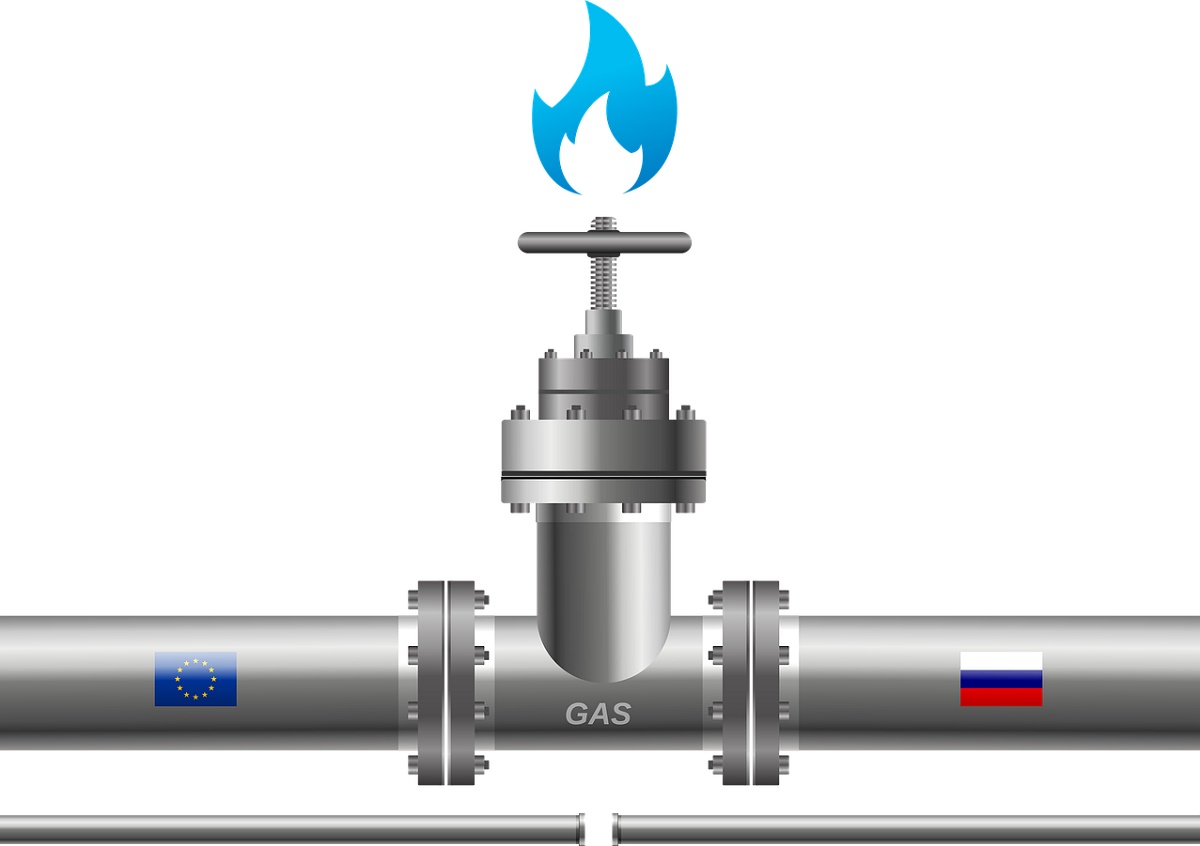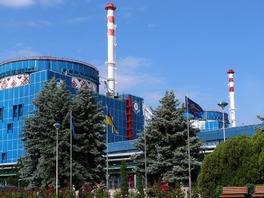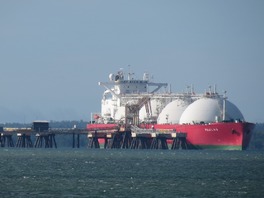As 2024 concludes, Russia's gas transit contract through Ukraine to Europe expires, with no plans for extension. Kiev, however, is ready for domestic transit if the EU negotiate with Russia directly. Apostrophe investigates the possible prospects for next year's gas transit, explores the EU's potential purchase of gas from the nation responsible for the largest European war since World War II, and assesses the risks to Ukraine's energy security if the Ukrainian Gas Transport system terminates gas transit.
Ukraine, under Prime Minister Denys Shmyhal, plans neither to extend the existing gas transit contract with Russia to Europe nor to enter into a new agreement with Russia.
‘We, of course, do not plan negotiations with the aggressor country to continue (the transit) and sign some new agreement,’ he said.
Simultaneously, Ukrainian government leader did not dismiss the possibility of extending the transit of Russian gas to European Union nations through Ukraine beyond 2024, post the current five-year contract expiration.
‘We had repeated negotiations with European leaders on the basis of the European Commission. If European countries act either as a consortium, or if one of the European partners acts as a transitor of its own gas, we are ready to provide such a service,’ he said.
The agreement between NJSC "Naftogaz of Ukraine" and Russia's "Gazprom" for gas transportation from Russia to Europe was inked on December 30, 2019. Set to expire this year, the parties have the option to extend or craft a new deal. Despite the ongoing conflict, Russia continues to supply gas to the EU through Ukraine. Presently, Russian gas reaches Europe via two routes—the Turkish Stream gas pipeline and Ukraine's gas transportation system.
Fizospeed to the EU
The discussion on the future of Russian gas transit to the EU through Ukraine is not novel. Ukrainian officials have previously asserted the impracticality of negotiating with a nation engaged in destructive warfare against Ukraine. In the European Union, ongoing talks consider the prospect of no gas deliveries via the Ukrainian route as early as 2025.
Amid the Russian invasion of Ukraine and coercive tactics that led to a notable drop in gas supplies to Europe, triggering a surge in prices (exceeding 3,000 euros per 1,000 cubic meters in summer and fall 2022), the EU adopted a strategy to curtail gas consumption, particularly from Russia. This includes the REPowerEU initiative aiming for a complete cessation of Russian fossil fuel reliance by 2030.
In this case, the European Union was able to achieve certain successes.
‘EU gas imports from Russia have decreased by 71% since 2021, and in 2023 they contributed to only 15% of the total import compared to 24% in 2022,’ the European Commissioner for EnergyKadri Simsonhighlighting that ‘after two years of the RePowerEu program results and a diversified network of alternatives are present’. Thanks to this, gas prices in the EU ‘have significantly decreased.’
‘I made it very clear to our Ukrainian partners that the European Commission will not be involved in [negotiations] with Russia, as it did five years ago when a trilateral gas transit agreement was made. On the contrary, according to our RePowerEU plan, we should cease using Russian gas by 2027 at the latest. We are working overtime to provide countries with alternative supply routes and alternative suppliers, and at the same time to support Ukraine and its further integration into the EU energy market,’ she also said.
Europe maintains a degree of dependence on Russian gas, including transit through Ukraine. However, alternative routes exist, such as receiving gas from Russia through Turkey and maritime shipments in liquefied form. Notably, Russian liquefied natural gas (LNG) supplies to Europe saw a substantial uptick following the onset of the Great War in 2022.
Certain EU nations, notably Slovakia, Austria, and Hungary (with Italy, to a lesser extent, claiming alternative Russian gas sources), exhibit a heightened reliance on the Ukrainian gas route. For these countries, obtaining Russian gas via Ukraine is not only more convenient but also economically advantageous. This is particularly true for Slovakia, with Prime Minister Robert Fico suggesting that Ukraine is prepared to extend the transit contract post-2024. However, Ukrainian authorities refuted this claim. One may suggest that during the meeting, Fico's Ukrainian counterpart, Shmyhal, hinted at continued transit sans a formal agreement between Ukraine and Russia.
According to experts interviewed by Apostrophe, the possibility is not ruled out, at least from a technical standpoint.
‘The option of European gas companies entering into contracts with "Gazprom" emerges as a solution to sustain Russian gas supply to Europe without necessitating direct agreements between Ukraine and Russia,’ said Mykhailo Honchar, president of the Center for Global Studies Strategy XXI. ‘The implementation of such a mechanism should have occurred in 2019 during the negotiations for the current contract. However, European partners compelled the signing of an agreement between Naftogaz and Gazprom.’
Volodymyr Omelchenko, the director of energy programs at the Razumkov Center, suggests a theoretical scheme for maintaining Russian gas transit to Europe through the Ukrainian GTS. Under this scheme, EU nations purchasing gas from Russia would arrange transportation contracts directly with Ukraine.
‘However, achieving this would involve relocating the gas sales point from the Ukraine-EU border to the Ukrainian-Russian border, necessitating both time and additional expenses,’ he says.
Omelchenko contends that implementing such an option at the energy company level is unfeasible. The necessary decision, he believes, must be made at the highest political echelons.
Moreover, it will be difficult to do even at the level of individual countries, he believes.
‘Just envision any European official, even the Prime Minister of Hungary, Viktor Orbán, journeying to Moscow for a Gazprom contract signing. This scenario appears highly improbable, particularly in light of statements from the European Commission,’ says Hennadiy Ryabtsev, head of special projects of the scientific and technical center ‘Psyche’.
This pertains primarily to the recent statement by European Commissioner Kadri Simson, who, in the words of Honchar, ‘with a directness explicitly uncommon for European bureaucrats’, conveyed the EU's lack of future interest in purchasing Russian gas.
‘The European Commissioner is evidently well-versed in the EU gas market dynamics. If she made this statement, it implies that European nations currently reliant on Russian gas possess the technical means to find alternatives. The ample interconnectors enable them to source gas from diverse directions," the expert says.
Life without transit
Hence, the transit of Russian gas through Ukraine's territory after 2025 appears improbable, although the influence of Viktor Orban and Robert Fico cannot be entirely discounted.
Though, this raises a question about the future utilization of the Ukrainian domestic Gas Transportation System, established primarily during the USSR era for gas transit to Europe.
Earlier concerns about potential challenges in delivering gas to Ukrainian consumers due to a pressure drop in the system following a transit halt have now been resolved.
‘The gas transportation system operator confirms readiness for operation without Russian gas transit, ensuring gas supply to all Ukrainian consumers. Potential challenges may arise in certain regions, but they are unlikely to be critical,’ Omelchenko says.
As Gennadiy Ryabtsev outlines, reconstruction efforts on compressor stations in 2020-2021 have significantly minimized dependence on pressure in the main pipelines.
‘Moreover, with reduced gas consumption in Ukraine, technical issues will not arise from a complete transit halt. The primary consequence of ending transit through Ukraine would be a minor income dip for Naftogaz, attributable to the loss of payment for transport services from Russia,’ the expert says.
Even this loss is relatively small; Naftogaz reports transit revenues of around $1.2 billion in 2022, likely lower in 2023, possibly less than $1 billion. While some might view this amount as significant in the context of financial assistance delays from Western partners, it is crucial to recognize that the termination of transit means a much greater loss for Russia. This, in turn, reduces funds available for waging war against Ukraine.
If gas transit ceases, there is concern that the absence of this deterrent might expose the Ukrainian gas pipeline to potential attacks from the aggressor country. This risk persists, however, even if transit continues without a formal contract from Ukraine.
‘The risks associated with Russian shelling will be borne by gas buyers,’ Omelchenko says. ‘Ukraine will only engage in contracts for the technical maintenance of transit, while European suppliers will independently assess the likelihood of potential disruptions, potential losses, and the cost of insuring against such risks.’
Previously, there was potential for the Russian Federation to target our Gas Transportation System, perhaps focusing on non-main gas pipelines. However, they refrained from doing so, likely considering Ukraine's effective response. Given Ukraine's enhanced capabilities for deep strikes in the enemy's rear over the two years of war, Kremlin old men will likely carefully weigh the decision to order strikes on Ukrainian gas transportation system facilities.




